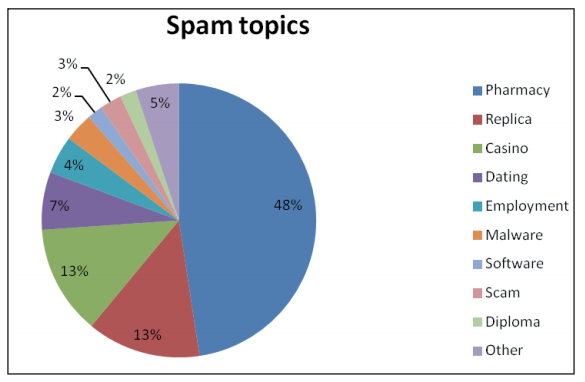Scammers Turning to Facebook for Targeting, Research Shows

Scammers are increasingly taking advantage of Facebook targeting tools and user trust to tout cheap pharmaceuticals, designer replicas and other products in a trend dangerously reminiscent of traditional spam, according to Bitdefender research.
The rapid growth of the social network and precision of its advertising tools are prompting criminals to lure Facebook users with tempting offers that may, like traditional spam, end in stolen user data, a six-month study by the antivirus software provider shows.
 The Bitdefender research on 50,000 unique domains, published in Virus Bulletin, revealed that pharmacy products account for 33 percent of these suspicious Facebook ads while replicas comprise 30 percent, gambling covers 18 percent and dating accounts for 19 percent.
The Bitdefender research on 50,000 unique domains, published in Virus Bulletin, revealed that pharmacy products account for 33 percent of these suspicious Facebook ads while replicas comprise 30 percent, gambling covers 18 percent and dating accounts for 19 percent.
“The fact that the ads are encapsulated inside a trustworthy environment gives them a trust boost and definitely lures in more users than your average spam message,” Bitdefender Online Threats Researcher Andrei Serbanoiu said. “But there are even greater advantages for the converted spam advertiser: Facebook has a very comprehensive list of targeting options, which allows scammers to maximize their success.”
On Facebook, ad-targeting options range from selecting certain age groups and geographical areas to specific education groups and people with shared interests. Unlike email spam, this allows for a very precise targeting of potential victims of scams.
Popular examples are ads for high-value prizes such as electronics, cars or even large sums of money. A click takes users to fraudulent schemes that persuade them to give away sensitive data such as personal or credit card information. They may also be tricked into installing a malicious piece of software, lured into an SMS sweepstakes scam, or brought to fake shops or shops selling counterfeit goods.
The Bitdefender research was mostly based on ads in English, Spanish, Portuguese and French. “Digging into Facebook Ads: Finding Clues that Indicate a Scam Pattern” can be found on the Bitdefender website – http://www.bitdefender.com/media/materials/white-papers/en/Bitdefender_WhitePaper_Facebook_ads.pdf.
This article is based on the technical information provided courtesy of Andrei Serbanoiu, Bitdefender Online Threats Researcher.
All product and company names mentioned herein are for identification purposes only and are the property of, and may be trademarks of, their respective owners.
tags
Author
Bianca Stanescu, the fiercest warrior princess in the Bitdefender news palace, is a down-to-earth journalist, who's always on to a cybertrendy story.
View all postsRight now Top posts
Uncovering IoT Vulnerabilities: Highlights from the Bitdefender - Netgear 2024 Threat Report
June 26, 2024
UEFA EURO 2024 Scams Are Already Here – How to Stay Safe
June 25, 2024
Most People Still Write Important Passwords Down, Bitdefender Report Finds
June 07, 2024
FOLLOW US ON SOCIAL MEDIA
You might also like
Bookmarks









